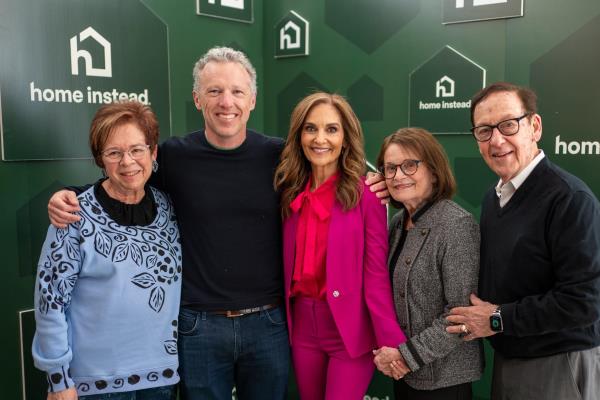In early September 2020, Honor hosted SAGE/2020, a national conference for innovation in the senior care space. Over two days, some of the brightest minds came together virtually to discuss the impact of COVID-19 and the needs and challenges of our growing aging population. Here are six opportunities highlighted by our SAGE speakers for how to better support and care for older adults in 2020 and beyond.
1. It’s time to change the narrative around aging.
It’s no surprise that the U.S. aging population is rapidly growing—the number of adults ages 85+ is projected to grow over 30% in the next five years—and the 65+ segment will see a steep incline in the coming years as the baby boomer generation ages.
We must change how we conceive of, talk about, and treat aging. SAGE keynote speaker Dr. Louise Aronson, renowned geriatrician and bestselling author, shared a few tips on how we can change the narrative:
- Speak directly to older people, not to their caregivers or their children.
- Recognize subcategories of elderhood—65-year-olds function differently from 85-year-olds—and reflect these stages in policies, language, and programs.
- Accept more older adults in the workforce so they can retain a sense of purpose.
- Design technology with older adult users—and their real needs and wants—in mind.
“It needs to be okay to grow old—because the only alternative is to die young,” Aronson emphasized.
2. Now more than ever, healthcare is extending into the home.
Home care has always been a crucial part of the care continuum—and our role is only becoming more important. “The general public is going to be a lot more sensitive about what their options are for aging as a result of COVID-19—they’re asking more questions and they’re more reluctant to move loved ones into facilities. That puts home care on the forefront,” said Family Resource Home Care CEO Jeff Wiberg. Our industry should prepare for a surge in demand as families, society, and the government push to keep people in their homes. The value of extending a broader range of healthcare into the home is a lower risk of exposure to infection, increased client comfort, and the potential for better health outcomes—all at a lower overall cost.
3. We must embrace technology as an integral part of the care continuum.
“Technology, used optimally, profoundly changes what you do and how you do it,” stated Joseph F. Coughlin, PhD, Director of MIT’s AgeLab. Our industry was already leveraging technology to support better care—this pandemic has only accelerated that trend. And with more people engaging with virtual care and other tools than ever before, we have a better-informed customer base and a deeper appreciation of what’s possible in digital health, added Kaiser Permanente Ventures Director Liz Rockett.
4. Professionalizing the caregiver workforce will better position our industry for long-term success.
Caregivers and home health aides are the backbone of our industry and the talent in any agency. But Manatt Health Adviser Carol Raphael warned that we often fail to value this workforce accordingly. How can we create opportunities for career growth? How can we build a compensation structure that ties skills to performance? How can we make caregiving a well-respected profession that is integrated with the rest of the healthcare system? The agencies that invest time and energy into attracting, supporting, and retaining caregiver talent will succeed in this increasingly competitive market.
5. Industry-wide alignment and advocacy are more important than ever.
We need collective action to push regulatory changes that would benefit the whole home care industry and make our services more affordable for consumers—by modifying tax codes, revising Medicare Advantage plans, and providing tax credits for qualified home care expenses. But as Home Helpers CEO Emma Dickison pointed out, it takes about eight years to pass the average bill in Congress. How can we drive change more quickly? By coming together and aligning ourselves to fund legislation, talk to legislators, and make our voices heard on Capitol Hill.
6. Now is the time to start talking about death and end-of-life planning.
Dr. Shoshana Ungerleider, Founder of The End Well Project, reported that this pandemic has brought end-of-life planning to the forefront. “People finally want to talk about death because it’s in our faces,” she explained. COVID-19 reminds us how fragile life is—so having conversations with loved ones, clearly stating our end-of-life wishes, and assigning a healthcare proxy is more important than ever. Death Doula and Educator Alua Arthur expressed hope that this trend is here to stay. “We must normalize these conversations and integrate them into the fabric of our society.”
As Dr. Aronson reminded us, “When talking about elder care, we so often talk about them. But we are all old people in training.” By working together today, we can build the future we want for ourselves tomorrow—which is what SAGE is all about. A huge thank you to our inspiring speakers and attendees for coming together virtually to share ideas and support each other. Watch all of the SAGE/2020 live sessions here.




